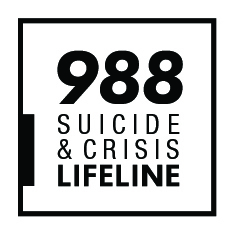Men Get Depression, Too
When I wrote this column in October 2013, I hoped it might encourage at least a few people, men in particular, to reach out for help. While many fear that disclosing their depression will be seen as a weakness, I feel that seeking help demonstrates tremendous strength. I admire both of these men for their strength and for sharing their stories to help others. – BR
Most people who seek treatment for depression are women. However, men also are at risk for depression. According to the National Institute of Mental Health, men are less likely to recognize that they have depression, to acknowledge they need help, and to take steps to seek help.
For this month’s column I talked to two men, both local to the Lake-Mason-Oceana County region. Both are successful, well-known professionals who are respected in their communities. And both have experienced depression. They agreed to share their stories in order to help other men who deal with similar problems.
“Bill” had a highly demanding career in manufacturing. Always a hard worker, he believed that he would have a good life if he worked hard towards his goals. He was successful in school and his career. He was the sort of worker who never said no to extra work, extra hours, and extra duties.
A few years ago, Bill noticed he was running low on energy. When he wasn’t working, he didn’t want to do anything. He didn’t want to leave the house or even go outdoors. He honored commitments if he had them, but avoided making plans. Bill recalled coming home from work, exhausted, and thinking, “If I only had the energy I would go get that gun and end it all.” Bill said it’s hard to accept having those thoughts because it makes one feel like a weak person.
Seeking help is a difficult decision to make, Bill said. He confided in a friend, who showed deep concern and urged Bill to see a doctor. Bill had some tests to rule out possible medical causes for his depression. Everything came back normal.
Rather than request medication or therapy, Bill struggled to get through by himself. He changed the way he handled demands at work and at home in order to reduce his stress level. He forced himself to engage in activities outside of home, even when he didn’t want to.
Over time, things got easier. He was less irritable. Now, his working environment has changed. He remains busy but feels a lot less pressure. “I still feel the depression,” Bill said. “I don’t think depression ever truly goes away. You learn to survive it. At least that’s true for me.”
Bill advises men who struggle with depression to “swallow hard” and seek the help they need. Seeking professional help was a choice he did not make, and he feels lucky to have survived.
Several years ago, “Jeff” experienced several significant losses and hardships in a short period of time. These adversities were tough, but Jeff said he probably could have handled them on their own. However, also at this time he suffered a severe back injury. Normally an avid distance runner, Jeff was completely unable to engage in his normal activities. Pain and disability from the injury lasted much longer than expected. Jeff went from feeling very young for his age to feeling 30 years older. He struggled just to function, and he wasn’t getting any better.
Jeff’s wife was concerned. But his depressed mind isolated itself, telling him that she just didn’t understand. Friends tired of hearing him whine about how he couldn’t do anything. More likely, he said, he wrongly interpreted their concern as annoyance. “Men aren’t going to sit down and have a deep discussion about this sort of thing,” Jeff said. “They’re going to throw out little jabs and barbs that sort of get at the point.”
At Jeff’s lowest point, he started to think that being dead wouldn’t be so bad. These thoughts scared him. Knowing his confidentiality would be respected, Jeff made an appointment with his primary care doctor.
“The whole mental health thing is really, really scary,” Jeff said. “You don’t want to admit it to yourself, let alone the world, that there’s a mental health issue.” Even so, Jeff spoke honestly to his doctor about his struggles. The doctor prescribed an anti-depressant, which Jeff diligently took despite what he read online about side effects. In reality, the side effects were negligible and the medication helped him.
Around that time, Jeff also began a new rehabilitation program for his back. He quickly saw improvement and soon realized he was going to get better. This was a pivotal moment, and thinking about it even today fills him with emotion.
Jeff’s back did get better. Other stresses in his life eased up, and his depression lifted in a matter of months. Looking back, Jeff’s most important advice for men who are struggling is: “Talk to your doctor and be honest.”
Depression is real and is a treatable illness. Most men who get proper treatment find that better days are ahead.
Betsy Reed is the Quality Assurance and Public Relations Coordinator at West Michigan Community Mental Health.
CONTACT:
Betsy Reed
West Michigan Community Mental Health System
Phone: 231-843-7285
Fax: 231-845-7095
Email: BetsyR@WMCMHS.org
 or
or 